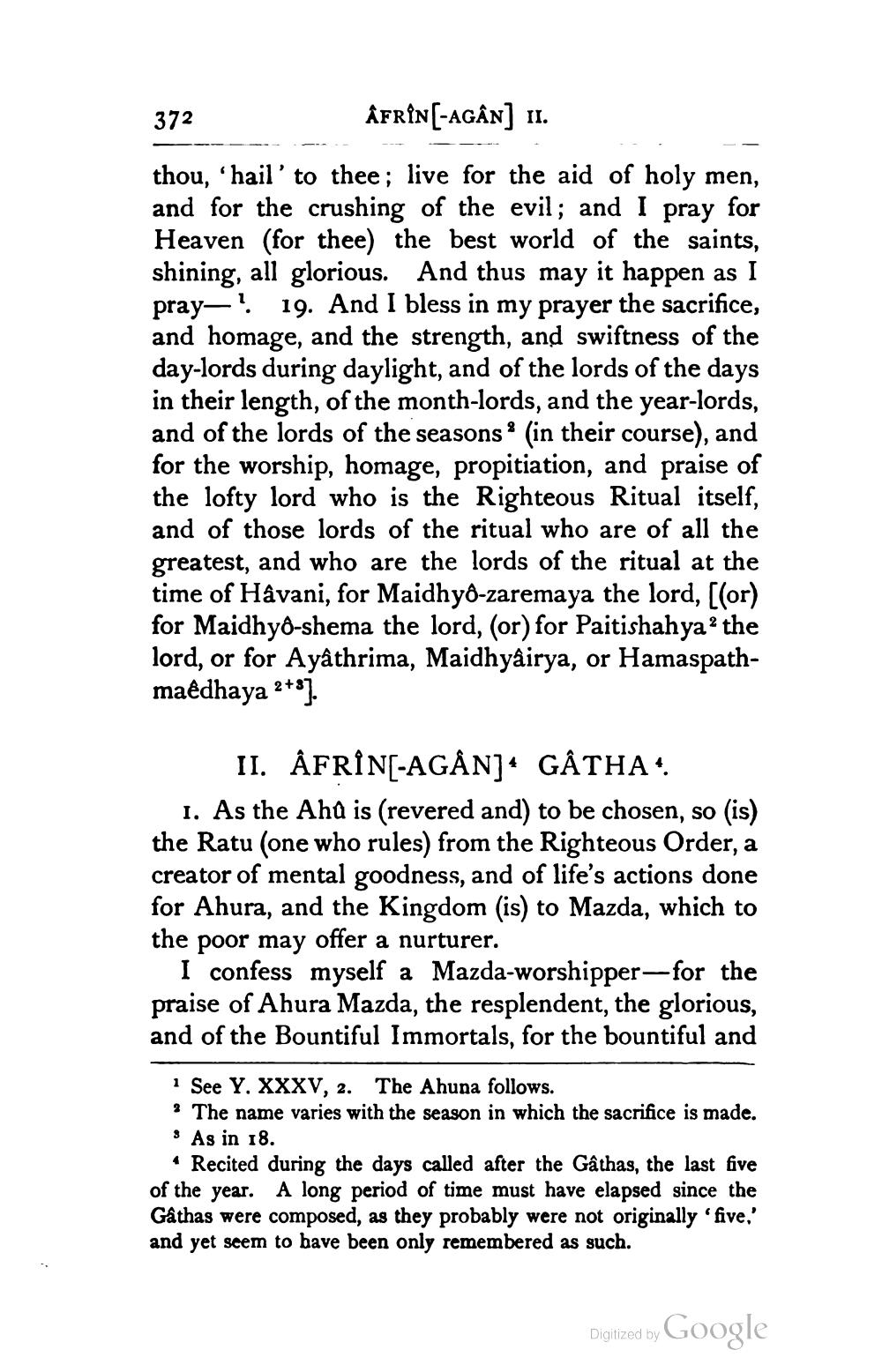________________
372
AFRÎN(-AGÂN) 11.
thou, 'hail' to thee; live for the aid of holy men, and for the crushing of the evil; and I pray for Heaven (for thee) the best world of the saints, shining, all glorious. And thus may it happen as I pray-? 19. And I bless in my prayer the sacrifice, and homage, and the strength, and swiftness of the day-lords during daylight, and of the lords of the days in their length, of the month-lords, and the year-lords, and of the lords of the seasons (in their course), and for the worship, homage, propitiation, and praise of the lofty lord who is the Righteous Ritual itself, and of those lords of the ritual who are of all the greatest, and who are the lords of the ritual at the time of Håvani, for Maidhyô-zaremaya the lord, ((or) for Maidhyô-shema the lord, (or) for Paitishahya2 the lord, or for Ayathrima, Maidhyâirya, or Hamaspathmaêdhaya 2+8].
II. ÅFRÎNC-AGÅN]* GÅTHA. 1. As the Ahd is (revered and) to be chosen, so (is) the Ratu (one who rules) from the Righteous Order, a creator of mental goodness, and of life's actions done for Ahura, and the Kingdom (is) to Mazda, which to the poor may offer a nurturer.
I confess myself a Mazda-worshipper-for the praise of Ahura Mazda, the resplendent, the glorious, and of the Bountiful Immortals, for the bountiful and
i See Y. XXXV, 2. The Ahuna follows.
The name varies with the season in which the sacrifice is made. : As in 18.
• Recited during the days called after the Gâthas, the last five of the year. A long period of time must have elapsed since the Gâthas were composed, as they probably were not originally 'five.' and yet seem to have been only remembered as such.
Digitized by
Digitized by Google




